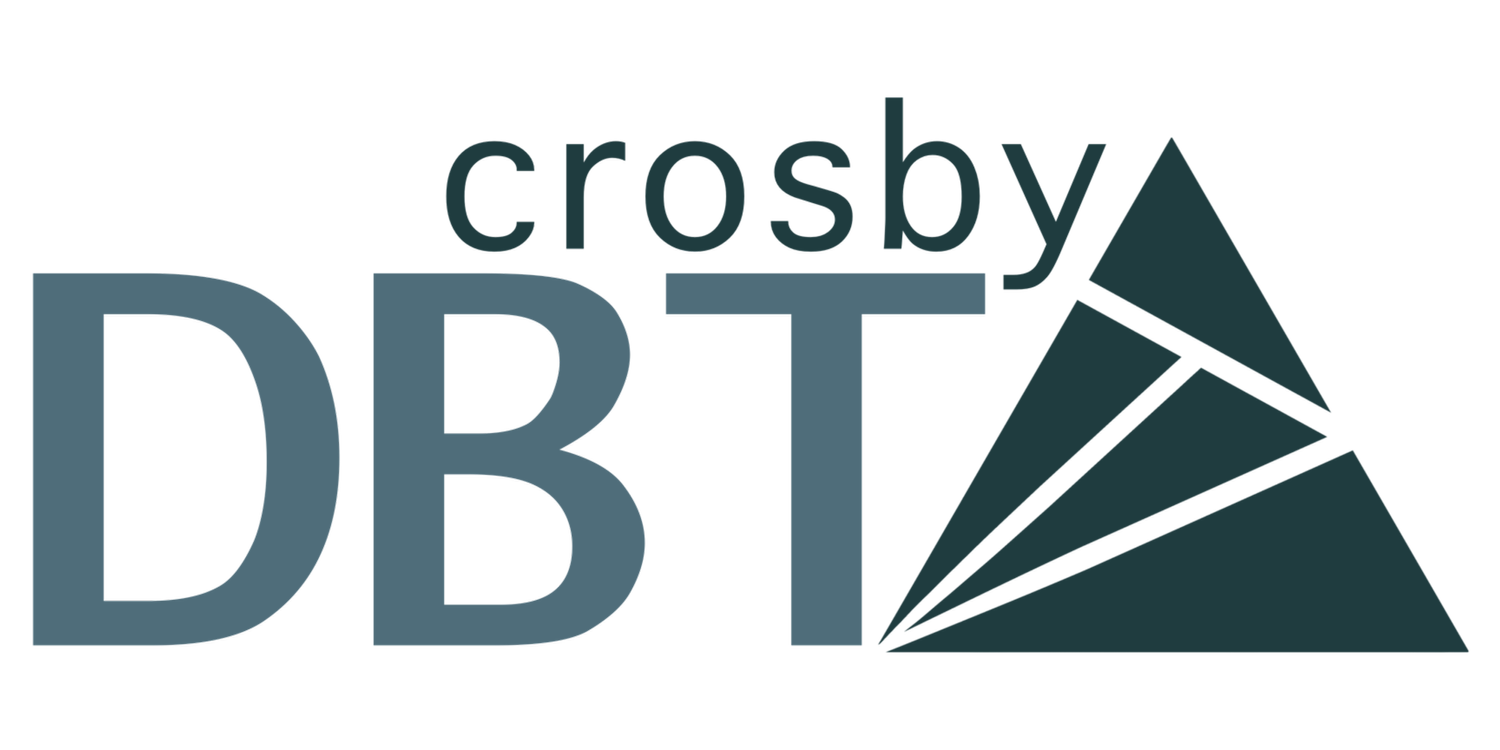How to Clarify Your Goals in Interpersonal Situations (The DBT Way)
Ever walked away from a conversation thinking,
"Why did I say that?" or "That didn’t go how I wanted at all…”?
Whether it’s a boundary you didn’t hold, a request you didn’t make, or a conflict that escalated too fast—it’s often because you weren’t clear (even with yourself) about what you wanted going in.
That’s why clarifying your goals is one of the most important—and underrated—skills in Dialectical Behavior Therapy (DBT).
It’s the first step in being mindful, assertive, and effective in any interpersonal interaction.
What Does It Mean to “Clarify Your Goal”?
In DBT, interpersonal effectiveness starts by asking:
What is my goal in this conversation?
Not what should I want, not what the other person wants—but what do I actually want or need here?
Once you're clear on your goal, you can use specific DBT tools (like DEAR MAN, GIVE, and FAST) to pursue that goal skillfully—without guilt, avoidance, or blowing up.
The 3 Core Goals You Can Clarify
DBT breaks interpersonal goals into three categories. You can think of these like lenses to help you decide how to show up in any interaction:
1. Objective Effectiveness: Getting What You Want
This goal is about achieving a specific result: asking for something, saying no, solving a problem, or getting your needs met.
Ask yourself:
What do I want to ask for, decline, or change?
What outcome would feel successful here?
Use the DEAR MAN skill to:
Clearly express your needs
Stay assertive without aggression
Negotiate without giving up your values
2. Relationship Effectiveness: Keeping or Improving the Relationship
Sometimes the health of the relationship is the most important goal. Maybe you’re trying to build trust, reduce conflict, or simply stay connected—even if you don’t get exactly what you want.
Ask yourself:
How do I want this person to feel about me after this?
What will strengthen our connection?
Use the GIVE skill to:
Show empathy and validation
Communicate gently and respectfully
Stay present and supportive
3. Self-Respect Effectiveness: Staying True to Your Values
This goal focuses on how you feel about yourself after the interaction. Are you acting in line with your beliefs? Are you standing up for what matters to you—even if it’s uncomfortable?
Ask yourself:
Will I feel proud of how I handled this?
Am I honoring my values, boundaries, or identity?
Use the FAST skill to:
Stay firm and honest
Avoid unnecessary apologies
Speak with integrity
Choosing Your Goal: A Quick Framework
When you're preparing for (or reflecting on) a difficult conversation, try this simple 3-step check-in:
1. What do I want from this interaction?
Be honest with yourself—even if the goal feels vulnerable or risky.
2. Which of the 3 goals is most important in this moment?
Sometimes you can balance all three. Other times, one takes priority.
3. What DBT skill best supports that goal?
DEAR MAN → If you need to ask, assert, or say no
GIVE → If you want to preserve or nurture the relationship
FAST → If you need to stay grounded in your values
✨ Pro tip: Write these out before a conversation. The act of naming your goal often brings clarity—and courage.
Example: A Real-Life Scenario
Situation: A friend keeps canceling plans last-minute, and you’re feeling frustrated.
You pause and ask:
Do I want them to stop canceling? → (Objective Goal)
Do I want to keep the friendship strong? → (Relationship Goal)
Do I want to feel like I honored my boundaries and needs? → (Self-Respect Goal)
All three matter—but you decide your main priority is self-respect and honesty. So you use the FAST skill to say:
“I value our friendship and I also want to be honest—it's been hard for me when plans keep getting canceled. I’d like us to find a way to reconnect that feels more reliable for both of us.”
You stay calm, truthful, and clear—and you protected your self-respect.
Final Thoughts
When we skip over clarifying our goals, we risk speaking from habit, fear, or people-pleasing.
But when we pause and get clear, we communicate with purpose—and that changes everything.
Whether you want to get your needs met, keep a relationship strong, or stay true to yourself, DBT gives you the tools to do it with clarity and confidence.
Want to put this into practice?
Next time you’re anticipating a tricky conversation, pause and ask:
“What’s my goal—and what skill can help me get there?”
You might be surprised by how much power that one question gives you.
